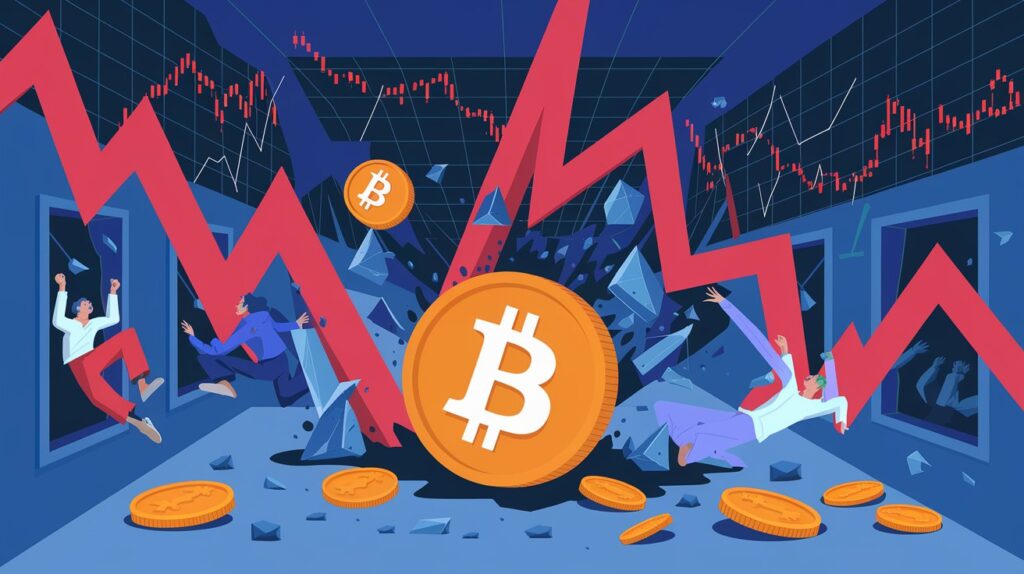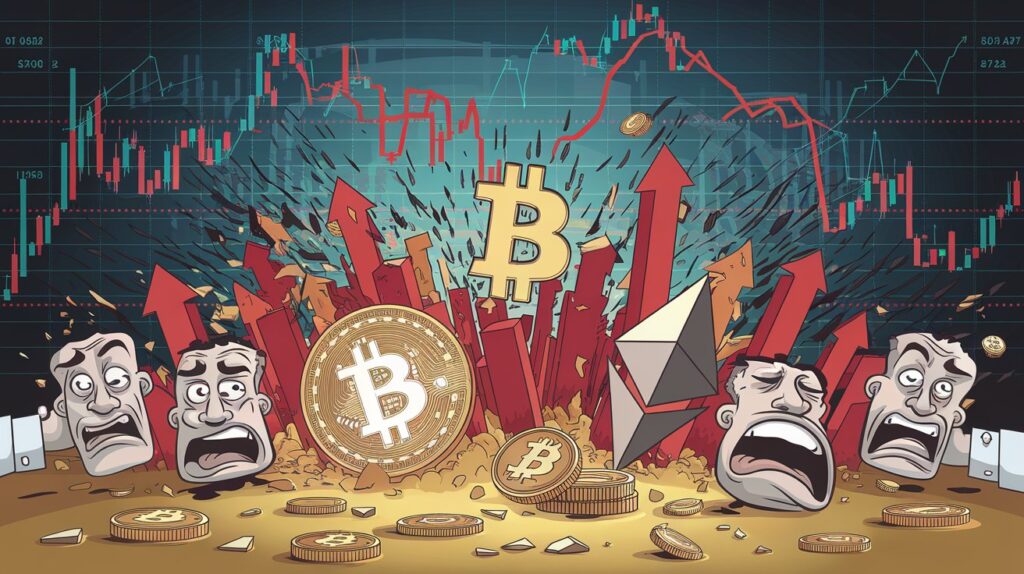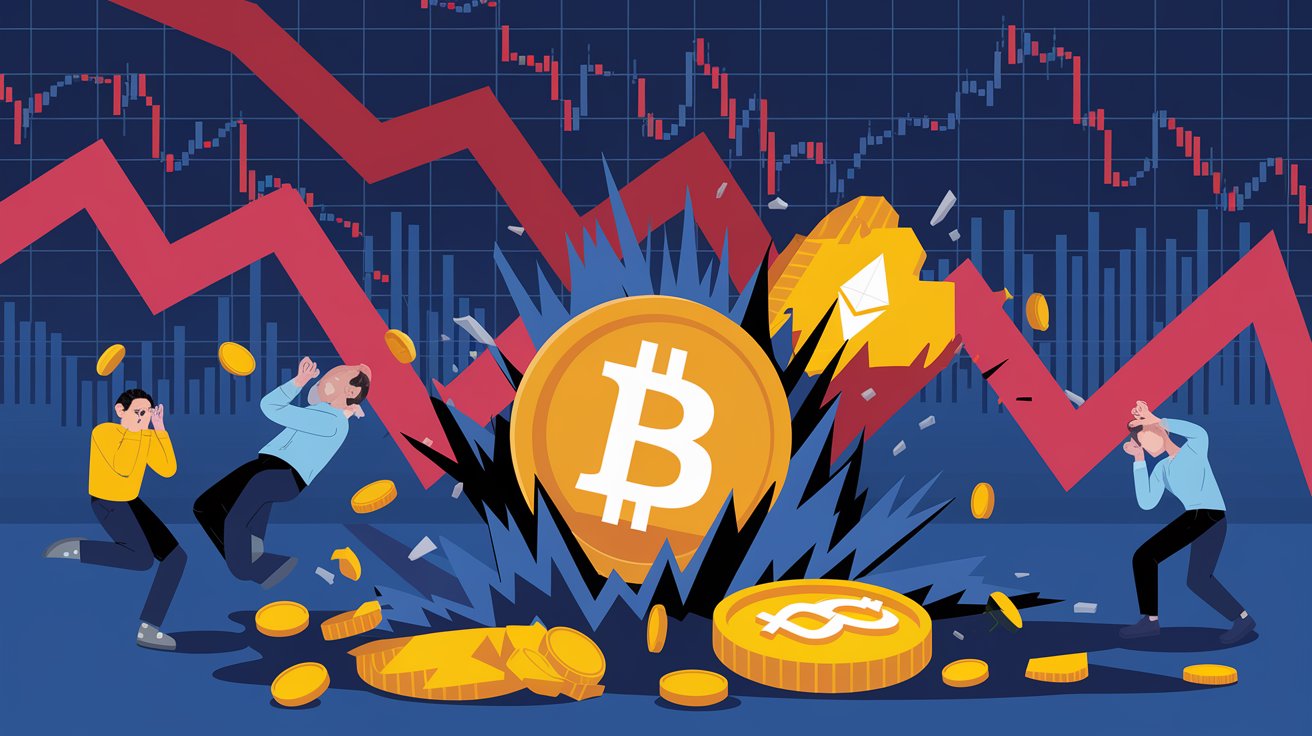Cryptocurrency markets are known for their volatility, but investors panic when the prices take a steep nosedive. Why is crypto crashing? This question has been on the minds of traders, enthusiasts, and financial analysts. Several factors contribute to these sudden crashes, including market trends, regulatory developments, and macroeconomic influences. Let’s break down the key reasons behind the crypto market’s decline.
Table of Biography for “Why Is Crypto Crashing”
| Factor | Description |
|---|---|
| Over-Leverage | Excessive use of borrowed funds leading to liquidations. |
| Regulations | Government crackdowns causing uncertainty. |
| Interest Rates | Rising rates reducing investor risk appetite. |
| Whale Manipulation | Large holders dumping crypto, affecting prices. |
| Cybersecurity | Hacks and scams damaging market trust. |
| Negative Media | Bad news spreading FUD. |
| Institutional Support | Lack of big investors leading to liquidity issues. |
| Economic Factors | Global financial instability affecting investments. |
| Market Corrections | Natural price corrections after bull runs. |
| Failed Projects | Scams and collapses shaking investor confidence. |

1. Market Over-Leverage and Liquidations
One of the biggest reasons crypto crashes is the high leverage in the market. Many traders use borrowed funds to amplify their positions. However, when the market turns bearish, these leveraged positions get liquidated, leading to a chain reaction of sell-offs. This sudden increase in selling pressure causes prices to plummet rapidly.
2. Regulatory Crackdowns
Governments worldwide have been tightening their grip on cryptocurrencies. Regulations impact investor confidence, and panic selling often follows when new restrictions are announced. Countries like China have imposed strict bans, while the U.S. continues to scrutinize crypto-related activities, leading to uncertainty in the market.
3. Interest Rate Hikes and Inflation Concerns
Traditional financial markets and crypto markets are more connected than many realize. When central banks, such as the Federal Reserve, increase interest rates, investors tend to move away from riskier assets like cryptocurrencies. Inflation concerns also cause instability, as people become more conservative with their investments.
4. Whale Manipulation and Dumping
Large investors, known as ‘whales,’ hold significant cryptocurrency. When these whales sell large portions of their holdings, it triggers a domino effect, leading to massive market crashes. Retail investors, seeing the price drop, also begin selling out of fear, accelerating the downfall.
5. Cybersecurity Threats and Hacks
Security breaches and major exchange hacks significantly impact the crypto market. When billions of dollars are stolen from exchanges or decentralized finance (DeFi) platforms, trust in the ecosystem declines, leading to panic selling and market crashes.
6. Negative Media Coverage and Public Sentiment
The crypto market is heavily influenced by public perception. Negative news, such as major firm bankruptcy filings, lawsuits against crypto companies, or social media rumors, can cause massive sell-offs. Fear, uncertainty, and doubt (FUD) spread quickly, making the market unstable.
7. Lack of Institutional Support
Many institutional investors have backed away from cryptocurrencies due to the unpredictable market conditions. When big financial players reduce their investments, it causes a liquidity crunch, making it harder for the market to sustain upward momentum.
8. Global Economic Uncertainty
Global economic instability plays a crucial role in crypto market trends. Economic downturns, wars, energy crises, and geopolitical tensions influence investor decisions. When economic uncertainty rises, investors move towards safer assets like gold and bonds, pulling money out of crypto.
9. Technical Market Corrections
Crypto prices don’t just rise indefinitely. After a significant bull run, corrections are inevitable. Many investors cash out their profits, leading to temporary market declines. While corrections are normal, panic selling exacerbates these downturns.
10. Failed Projects and Scams
The crypto industry has seen its fair share of failed projects, Ponzi schemes, and rug pulls. When major projects collapse, investor confidence shakes, leading to massive market downturns. The collapse of Terra Luna in 2022 is a prime example of how a single event can crash the market.
How to Survive a Crypto Crash?
- Don’t Panic Sell: Short-term dips don’t always indicate long-term failure.
- Diversify Investments: Don’t put all your money into a single cryptocurrency.
- Stay Updated on Regulations: Awareness of upcoming regulations can help you make informed decisions.
- Use Risk Management Strategies: Avoid excessive leverage and set stop-loss orders.
- Invest in Strong Projects: Research coins with solid fundamentals and real-world use cases.

Final Reviews
The crypto market is unpredictable, and crashes are inevitable in the industry. Understanding why crypto crashes can help investors make informed decisions rather than reacting out of fear. While the market may face short-term turbulence, the long-term future of cryptocurrency remains promising with continued innovation and adoption.


